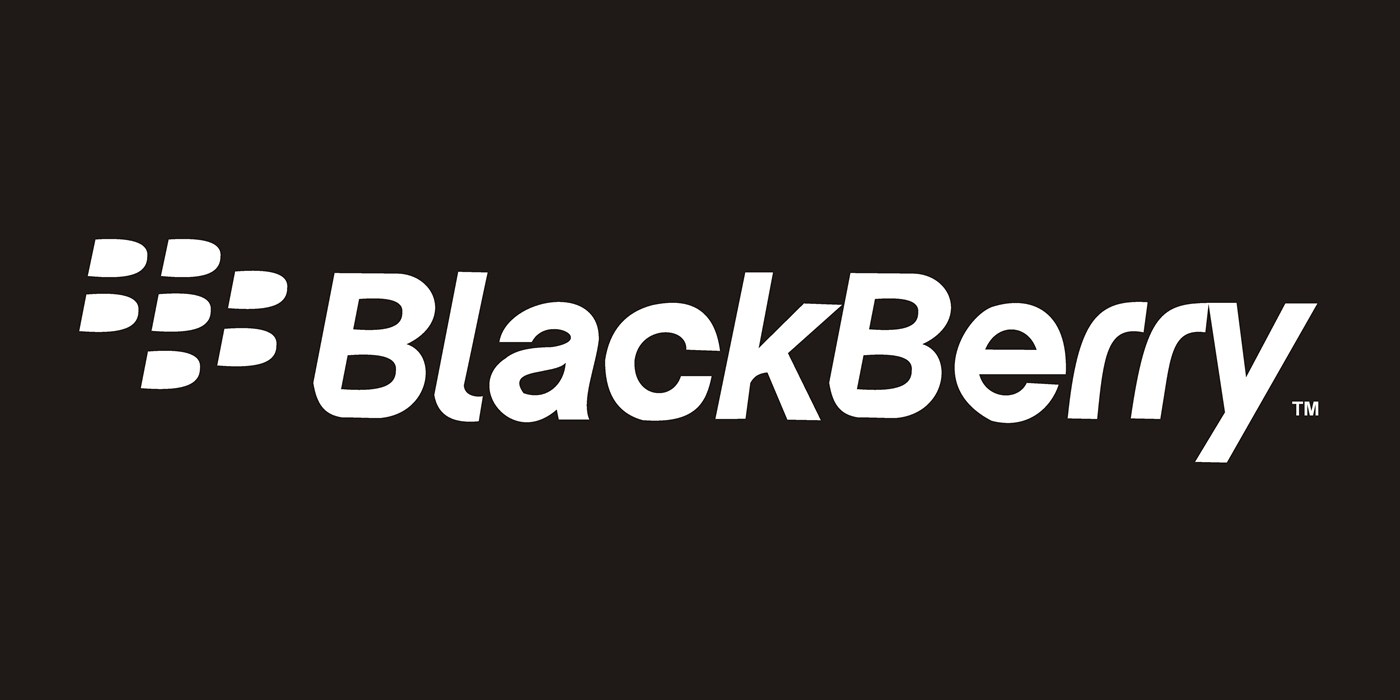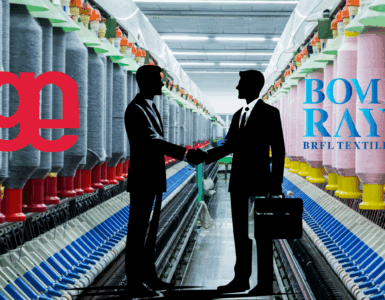RESEARCH IN MOTION LIMITED (RIM):
The company was incorporated under the Business Corporations Act on March 1984, headquarters at Canada. A global leader in wireless innovation revolutionized the mobile industry with the introduction of the BlackBerry solution (Year: 1999). Since then, BlackBerry products and services have continued to change the way millions of people around the world stay connected.
RIM’s common share was also listed on NASDAQ Stock Market and the Toronto Stock Exchange. With the launch of BlackBerry 10 in January 2013, it has re-designed, re-engineered and re-invented BlackBerry. Not only did it introduce a new mobile experience to global community of BlackBerry users, but it also introduced a new name for the company. Research In Motion now operates globally under the iconic name BlackBerry. To further signal this exciting rebranding of the Company, stock ticker on the NASDAQ exchange will be BBRY and on the TSX exchange, BB.
A closer look at how BlackBerry managed to plummet so far, so quickly, and what can other businesses learn from BlackBerry’s mistakes
TOP TO BOTTOM (BlackBerry has become almost irrelevant in a market it helped create):
What was once a dominant player in a smartphone business it essentially helped create are now being acquired by a private consortium for a fraction of what the company was worth just a couple of years ago. Let’s take a closer look at how BlackBerry managed to plummet so far, so quickly, and what can other businesses learn from BlackBerry’s mistakes. BlackBerry was a spark that started the whole mobility movement. It was the BlackBerry smartphone, with its iconic physical keyboard, that freed business professionals from their desks and allowed them to remain in touch and productive from virtually anywhere. BlackBerry also deserves credit for secure communications. They implemented a secure platform within the open internet and cell networks, allowing companies to exchange data without exposing their communications traffic to the rest of the world. So, what happened? How did BlackBerry turn a virtual monopoly into an almost negligible market share so quickly?
BlackBerry didn’t look at what the rest of the world was doing. When reacted it was too late to the threat from Apple’s iPhone and manufacturers using the Google Android operating system which were launched in 2007. Blackberry had a new operating system in 2010, but it took them further three years to get in the market. So that six years in which the market was moving too fast cost Blackberry a huge. When the driving force of mobile connectivity went from communications and productivity to lifestyle, they failed to keep up with the demand for an app ecosystem that would allow their users to seamlessly move from work to personal on their platform.
The big question is, what can other businesses learn from the rise and fall of BlackBerry?
No matter what your stature or position in the market is, the future is uncertain. You must innovate continuously, forever. You have to stick to your core technology and value, but you can’t let it define your company or paint you into a corner.
INDUSTRY ANALYSIS:
Android devices have overtaken sales of Apple’s iPhone globally by a wide margin, helped by low prices in developing countries. The research firm says if Apple releases a cheaper model of the iPhone, there could be more competition in some places, but that Android will continue to outsell the iPhone in regions where price is a major factor. Android, with both high and low prices for its devices, will almost certainly be the biggest player for a considerable time.
| Sr. No. | Mobile Operating System | Developed By | Launched in year | Market Share for Mobile | Support to Mobile Manufacturer | |
| 2013 (IDC Worldwide) | 2016 (Garten Analysis) | |||||
| 1 | Android | Google (Initially by Android Inc.) | 2007 | 79% | 50% | Samsung, HTC, Micromax, Karbonn, Sony Ericson, LG, Motorola, Intex, Spice Lenovo, etc. |
| 2 | iOS | Apple Inc. | 2007 | 13% | 21% | iPhone, (other than mobile: iPod Touch, iPad, iPad mini & Apple TV) |
| 3 | Windows | Microsoft | Before 2010 | 4% | 23% | Nokia, Acer, Asus, Dell, HP, Toshiba, Orange, Motorola, etc. |
| 4 | Blackberry OS (BB-10) | RIM | 1999/2012 | 3% | 2% | Blackberry Smartphone’s and tablet |
| 5 | Bada | Samsung | 2010 | 0% | 3% | Samsung Wave device |
| 6 | Symbian | Accenture (Initially by Symbian Ltd) | 2002 | 0% | 0% | Samsung, Motorola, Nokia, Sony Ericson |
Canada’s BlackBerry has been losing market share in recent years to both Apple and the Android operating system, used in Samsung, HTC devices among others. First, RIM was not able to move towards the open sourced software which the android has done and which leads to no. 1 position itself. And second, the first-round of Blackberry 10 phones, a new software of Blackberry, has struggled against the latest iPhone and Android devices. And now in that is the Windows-based Smartphones.
The Blackberry has no position in the top 10 market holder, if phones other than smartphone are considered.
| World Mobile Market Share | |||||
| Source: Rediff website | |||||
| Sr. No. | Mobile Manufacturer | Rank | Country | Sales in (Qty in mn) | Market Share |
| A | Samsung | 1 | South Korean | 107 | 24.70% |
| B | Nokia | 2 | Finland | 61 | 14.00% |
| C | Apple | 3 | USA | 32 | 7.30% |
| D | LG Electronics | 4 | South Korean | 17 | 3.90% |
| E | ZTE | 5 | Chinese | 15.2 | 3.50% |
| F | Huawei | 6 | Chinese | 11.2 | 2.60% |
| G | Lenovo | 7 | Chinese | 11 | 2.50% |
| H | TCL Communication | 8 | Chinese | 10.13 | 2.30% |
| I | Sony Mobile Communications | 9 | Japan | 9.5 | 2.20% |
| J | Yulong | 10 | Chinese | 8.9 | 1.80% |
| K | Others | 153 | 35.20% | ||
| L | Total | 435.93 | 100.00% | ||
BLACKBERRY SOLUTION?
BlackBerry said that it had signed a letter of intent from a group led by Fairfax Financial Holdings, a Canadian insurance and investment company, to pay shareholders $9 a share in cash, pending a variety of conditions, taking the company private. BlackBerry now enters a shop period for about six weeks where it can solicit, receive and enter into negotiations with other interested parties. If another buyer offers more than $9 a share during the shop period, then Fairfax would receive an incentive fee of about $157 million for attracting interest in the company. More details are expected on November 4, when the “diligence period” ends. News of BlackBerry’s buyout offer comes just after the company announced a massive restructuring, which includes slashing 4,500 jobs, and a revised forecast for its second-quarter earnings.
The $4.7 billion offer from Fairfax (which is not even 10%, as compared to value of the company in 2008), which already owns about 10 percent of BlackBerry, is a powerful symbol of phone maker’s decline. In 2008, a time when BlackBerrys defined smartphones, the company had a stock market value of $83 billion. This might not be the solution for the blackberry as a company, but this was the only solution for the promoters or/and investors as they are in doldrums from the company performance.
FAIRFAX FINANCIAL (The Interested Party):
Fairfax Financial, sometimes called the Berkshire Hathaway of Canada, is a holding company whose primary business is in insurance. Watsa, a man behind the company and 1971 batch IIT Chennai graduate in chemical engineering. He arrived in Canada with little more than pocket change with which to pursue his dreams. He did his MBA from the Richard Ivey School of Business at the University of Western Ontario. Since then, he has made a name for himself, mostly as an investor who identifies distressed and undervalued assets, bets on them, and reaps returns. Fairfax Financial Holdings, an insurance-cum-investment company that Watsa founded in 1985, went on to become Canada’s most profitable company in 2008.
Watsa, one of the wealthiest individuals in Canada, is reclusive by nature and limits public appearances mostly to Fairfax’s annual shareholder meetings. However, his company’s latest move – a $4.7 billion bid to buy smartphone maker BlackBerry, has put the spotlight on the Hyderabad-born billionaire. BlackBerry is by far the most high profile company in Canada and Fairfax – short for fair, friendly acquisitions – is its largest shareholder with around a 10% stake. Fairfax raised its stake in Blackberry from 2 percent in January 2012 (when he joined the Blackberry board) to 10% by mid-2013, during a period when the company stock prices were on a decline. Watsa, who was then just another IIT engineer in search of an MBA, now holds the future of an ailing, but still iconic Blackberry in the hands. Watsa’s mantra of risk-averseness and long-term view has stood him well over the years, but it’s his eye for the big picture that enables him to see investment pitfalls and financial crises way before others, say observers.
He was the first to predict the crash of 1987, the Japanese collapse of 1990 and the 2008 sub-prime mortgage crisis in the US.
WHAT IS THE WORTH?
Watsa has been a strong believer in Blackberry from the time he started buying its shares. “The brand name, a security system second to none, a distribution network across 650 telecom carriers worldwide, a 79 million subscriber base, enterprise customers accounting for 90% of the Fortune 500….are all formidable strengths..”. Analysts say blackberry’s handsets are unlikely to draw much interest but the company’s software and a service, which has a strong reputation for security, might offer the most value. Their device management solution is as good as it gets in the industry. Blackberry has ability to allow IT managers to control and monitor devices for a large number of employees.
WAY FORWARD – “CRACKBERRY TO BLACKBERRY with no cracks”
-
TAKING PRIVATE- is the solution?
Prem Watsa, Chairman and CEO of Fairfax, said in a statement that a “private chapter” for BlackBerry would deliver immediate shareholder value while enabling the company to continue with its “long-term strategy.” It would be an excellent thing for Blackberry to be able to go private, out of the public eye and to try and reshape itself and see if they can go forward market as an enterprise-focused company. The same decision in the case of Dell was taken by the promoter as the company was losing it market share due to blackleg in updating of products with the technology changes. The benefit to this sort of takeover is the ability for BlackBerry and the consortium to reinvent the company without public scrutiny. So we won’t see any of these warnings or earnings releases that do nothing but disappoint investors.
Private or public, BlackBerry’s problems remain the same: slumping market share, mostly uninspiring devices and cut-throat competition threatening the state-of-the-art security of the BlackBerry network.
-
Innovation to the products?
Just not innovation as the innovation of the BlackBerry in the form of “BlackBerry-10” also failed. Now the innovation should be in line with the lifestyle of the consumer. The product should change with the changes in the lifestyle of the customer.
So “Crackberry” widely referred for “Blackberry” in USA has been cracked with the fall from the top to bottom. It changed the way we live, but as so often happens, innovation has not been enough to generate sustained commercial success. It is a fascinating story, which will be chewed over in business schools for years to come. Mobile phones, and now smartphones, have seen a faster take-up than any other technology: faster than television, far faster than cars, faster even than the Internet. As such it has several unusual features. For a start, this is a demand-driven revolution, rather than a supply-driven one. We don’t have to be told by advertisers that this is something we want when we don’t really need it. Second, the technological lead that any company can sustain is extremely fragile. Nokia was the world’s largest phone maker but has seen a collapse in its market share and been forced to sell that bit of its business. Currently, the smartphone business is dominated by Samsung and Apple but that lead could be overturned in a few years. This is utterly different from just about every other area of the corporate world, where once a strong market position is achieved, it is takes a long time to be dislodged from it. Third, this is the first set of technologies where North America and Western Europe do not dominate the market, even in its present still-early stages. The top six markets are China, India, the US, Brazil, Russia and Indonesia, in that order. This is a technology where the markets are led by the BRICs.
The current status of the company has to be changed
From: “We changed the world—and it kept changing right out from under us.”
To: “We change our products with the changes in the customer lifestyle”




